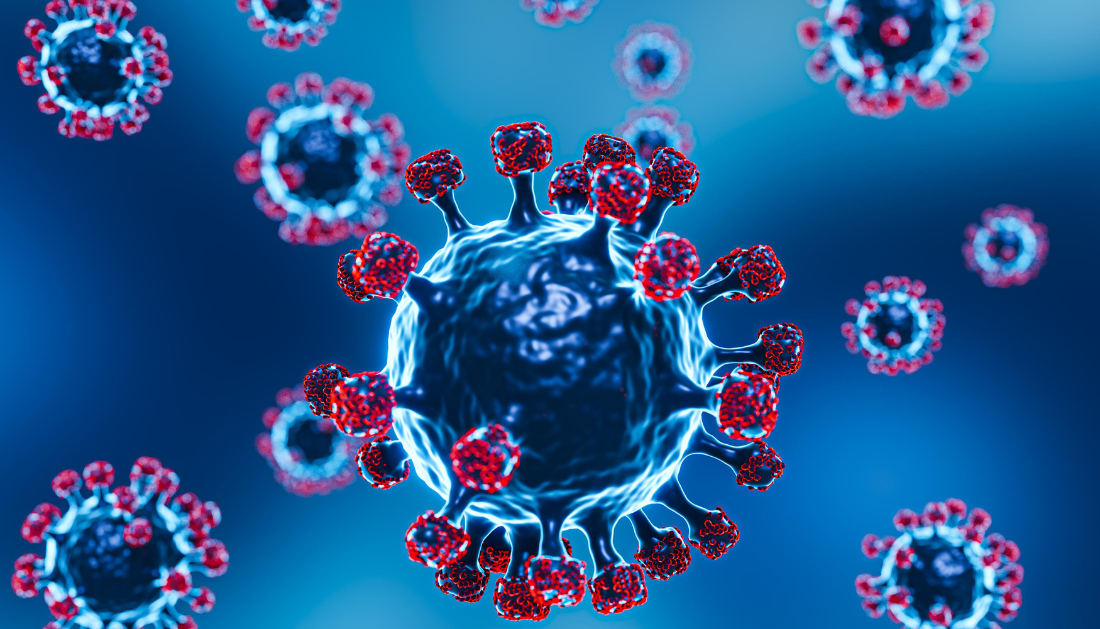

The commencement of the COVID-19 pandemic resulted in unparalleled exposure to stresses caused by worries about a rare and terrible disease, severe uncertainty, and ensuing isolation measures, all of which contributed to increased anxiety for many people. According to new research, people who were in therapy for anxiety prior to the pandemic did not see an increase in their symptoms during this extremely difficult time.
According to the study’s authors, cognitive-behavioral therapy (CBT) and dialectical behavior therapy (DBT) can help people with anxiety manage their symptoms in the face of these strong stresses. The study, led by psychologists from McLean Hospital, a Mass General Brigham affiliate, and Touro University, was published in PLOS One.
“Our research suggests that CBT and DBT can offer major benefits to protect individuals’ mental health amidst a major world catastrophe and period of upheaval,” says lead study author David H. Rosmarin, Ph.D., ABPP, a clinical psychologist at McLean Hospital and associate professor of psychology at Harvard Medical School.
“People who have been treated for anxiety know that fighting it is not helpful and that there are tools to help accept the current realities of their situations,” he said. “In some ways, having a previous anxiety disorder before a crisis occurs can be a blessing.”
For the study, researchers compared the treatment trajectories of 764 people who participated in outpatient therapy and divided them into four groups based on when they started treatment:
• pre-pandemic (start date on or before 12/31/2019)
• pandemic-onset (from 01/01/2020 to 03/31/2020)
• during-pandemic (from 04/01/2020 to 12/31/2020)
• and post-pandemic once vaccines became available (on or after 01/01/2021)
Anxiety was assessed at entry and at each subsequent session using the GAD-7 questionnaire, which evaluates anxiety symptoms. The researchers then examined the paths of anxiety and compared the four groups. Therapy consisted of CBT and DBT.
Their findings demonstrated that patients initially had moderate anxiety, which immediately decreased after 25 days of starting therapy and steadily fell to mild anxiety over the course of their sessions.
When the researchers compared the four patient groups, they found no significant changes, implying that treatment results were robust to pandemic-related environmental stresses. Furthermore, the researchers found no increase in anxiety among patients in treatment during the start of the pandemic (March 20, 2020–July 1, 2020).
“We were astonished. We expected patients to be more anxious during the pandemic and before vaccines were available, and therapy to be less effective, but this was not the case,” says study co-author Steven Pirutinsky, Ph.D., assistant professor at Touro University’s Graduate School of Social Work.
Studies have demonstrated that the COVID-19 pandemic had a negative influence on mental health, with substantial increases in anxiety from the pandemic’s commencement in early 2020 to the first availability of vaccinations in early 2021. The World Health Organization reported that the global prevalence of anxiety and sadness increased by 25% in the first year of the pandemic.
“There is a widespread misperception that anxiety is a risk factor for people crumbling and not being able to function,” Rosmarin said. “However, when people receive evidence-based psychotherapy and learn skills to cope, they can become more resilient than those who have never had anxiety at all.”
The study’s limitations include the fact that, while demographically and clinically diverse, the participant pool was predominantly made up of highly educated people from the northeastern United States. The pandemic-onset group was also smaller than the other groups, possibly because of the limited availability of in-person therapy at the time.
The study also did not examine other mental health indicators, such as depression and substance abuse. More research is needed to get insights into how these findings may have an influence on other regions of the country and conditions other than anxiety disorders.
More information: Rosmarin, DH et al. Response to anxiety treatment before, during, and after the COVID-19 pandemic, PLoS ONE (2024). DOI: 10.1371/journal.pone.0296949
more recommended stories
 Healthy Habits Slash Diverticulitis Risk in Half: Clinical Insights
Healthy Habits Slash Diverticulitis Risk in Half: Clinical InsightsHealthy Habits Slash Diverticulitis Risk in.
 Caffeine and SIDS: A New Prevention Theory
Caffeine and SIDS: A New Prevention TheoryFor the first time in decades,.
 Microbial Metabolites Reveal Health Insights
Microbial Metabolites Reveal Health InsightsThe human body is not just.
 Reelin and Cocaine Addiction: A Breakthrough Study
Reelin and Cocaine Addiction: A Breakthrough StudyA groundbreaking study from the University.
 Preeclampsia and Stroke Risk: Long-Term Effects
Preeclampsia and Stroke Risk: Long-Term EffectsPreeclampsia (PE) – a hypertensive disorder.
 Statins and Depression: No Added Benefit
Statins and Depression: No Added BenefitWhat Are Statins Used For? Statins.
 Azithromycin Resistance Rises After Mass Treatment
Azithromycin Resistance Rises After Mass TreatmentMass drug administration (MDA) of azithromycin.
 Generative AI in Health Campaigns: A Game-Changer
Generative AI in Health Campaigns: A Game-ChangerMass media campaigns have long been.
 Molecular Stress in Aging Neurons Explained
Molecular Stress in Aging Neurons ExplainedAs the population ages, scientists are.
 Higher BMI and Hypothyroidism Risk Study
Higher BMI and Hypothyroidism Risk StudyA major longitudinal study from Canada.

Leave a Comment